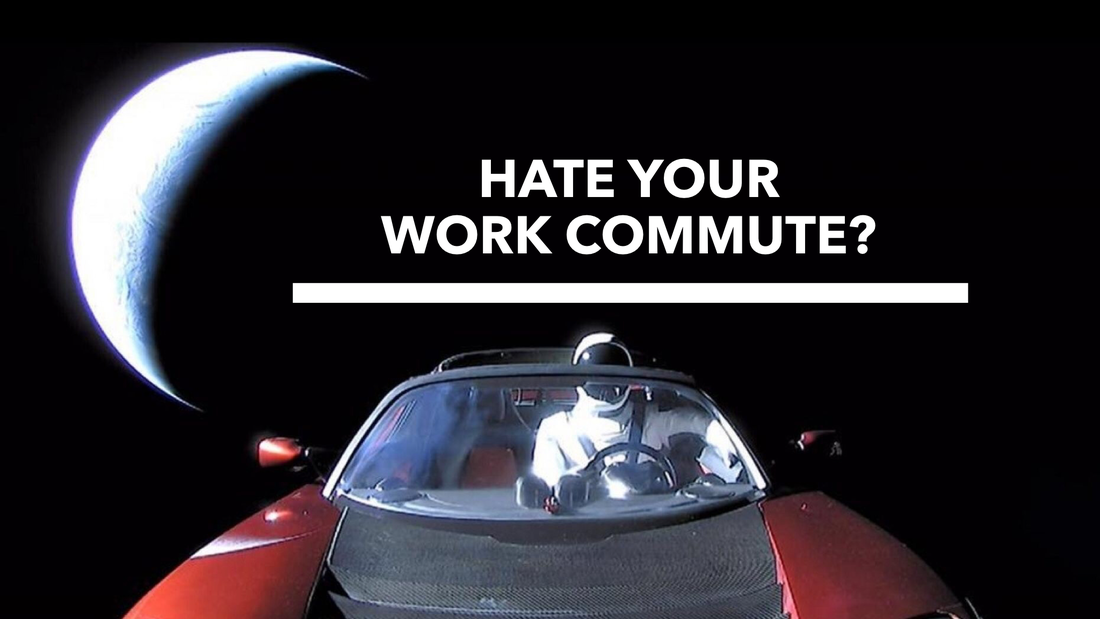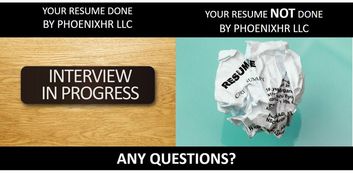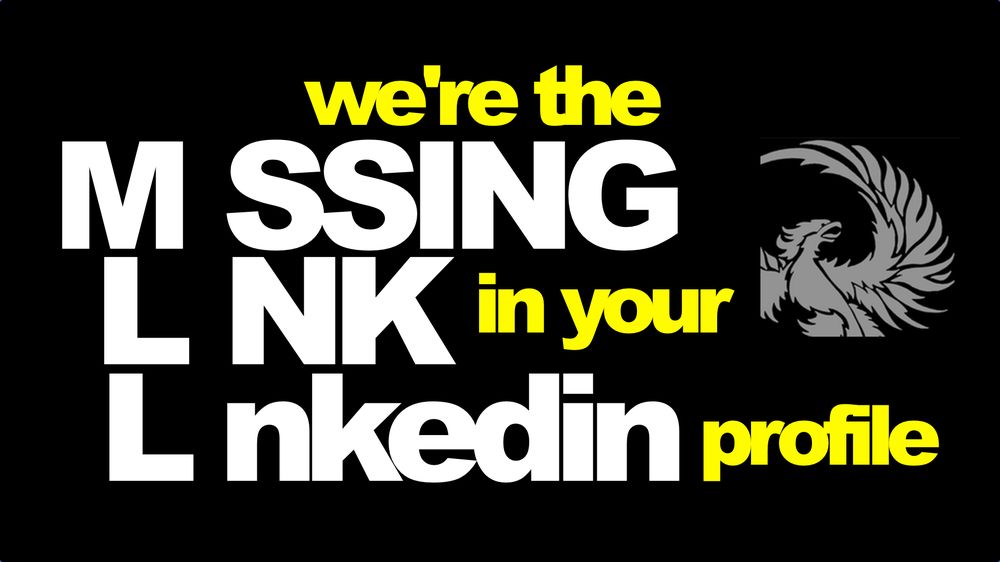What Remote Employers & Job Seekers Look For In Each Other
& How to Land That Remote Job Interview
The Incredible Shrinking Remote Workforce?
What do IBM, HP, Bank of America, Aetna and Yahoo have in common? They are among the growing ranks of employers who were once big advocates of working remote, but have reversed course and recalled employees back to the office. At the same time, remote work isn't going away (a full 43% of employees in a recent Gallup survey reported working remote) and there are still many remote employers looking for qualified remote workers. This mixed environment tells you 2 things:
1. After seeing big companies rollback their remote strategies, the remaining remote employers are more selective than ever about who they hire.
2. The rollback in remote job means the competition between candidates is fierce. Candidates who don't bring their A-game to the remote job search will get passed over for interviews.
1. After seeing big companies rollback their remote strategies, the remaining remote employers are more selective than ever about who they hire.
2. The rollback in remote job means the competition between candidates is fierce. Candidates who don't bring their A-game to the remote job search will get passed over for interviews.
What Remote Employers Look For
Remote employers want remote workers who are:
Focused & Disciplined, with a track record of being highly organized and who know how to prioritize. Remote workers who can show they have sufficient discipline to stay focused on their work, regardless of distractions (such as being in a different time zone or goings-on at home).
Self-Motivated & Trustworthy, who can consistently deliver quality work on time without being reminded. Remote workers that they can trust, especially if the manager has other remote workers to coordinate and oversee. Establishing and developing trust starts with the remote worker...in a healthy remote work relationship, the greater the worker's track record of strong performance, the greater the trust returned by the remote employer.
Super-sized Communications, used to make up for remote workers having less "face time" than their office counterparts. Remote workers who not only know how to communicate clearly verbally and in writing, but also know when to "over communicate" and bridge the distance that goes with remote work.
Resourceful Problem Solvers that can take ownership of problems, analyze them and find creative solutions on their own.
Tech-Ready, which means possessing not only basic tech knowledge to work remote (how to use Windows, Word, Excel, Outlook) but the basic tech tools (a desktop or laptop, a printer, a landline or cell phone). There are still many remote workers who remain "tech-challenged"...prefer to keep all their records on paper because they don't feel comfortable using their computers....who can't print an important document because they don't have a printer...who don't know how to manage a PDF or use basic office productivity software. Those are the remote workers who are not getting calls for remote job interviews....or if currently employed remote, won't be employed for long.
Focused & Disciplined, with a track record of being highly organized and who know how to prioritize. Remote workers who can show they have sufficient discipline to stay focused on their work, regardless of distractions (such as being in a different time zone or goings-on at home).
Self-Motivated & Trustworthy, who can consistently deliver quality work on time without being reminded. Remote workers that they can trust, especially if the manager has other remote workers to coordinate and oversee. Establishing and developing trust starts with the remote worker...in a healthy remote work relationship, the greater the worker's track record of strong performance, the greater the trust returned by the remote employer.
Super-sized Communications, used to make up for remote workers having less "face time" than their office counterparts. Remote workers who not only know how to communicate clearly verbally and in writing, but also know when to "over communicate" and bridge the distance that goes with remote work.
Resourceful Problem Solvers that can take ownership of problems, analyze them and find creative solutions on their own.
Tech-Ready, which means possessing not only basic tech knowledge to work remote (how to use Windows, Word, Excel, Outlook) but the basic tech tools (a desktop or laptop, a printer, a landline or cell phone). There are still many remote workers who remain "tech-challenged"...prefer to keep all their records on paper because they don't feel comfortable using their computers....who can't print an important document because they don't have a printer...who don't know how to manage a PDF or use basic office productivity software. Those are the remote workers who are not getting calls for remote job interviews....or if currently employed remote, won't be employed for long.
What Remote Job Seekers (SHOULD) Look For
Seek out credible remote employers. Don't assume every remote employer is good at being a remote employer - or is a good employer. Beware of remote job postings whose only real content are claims like, "Make $1,000 a week in your spare time!" Do your homework on the company that placed the ad...do they have a website? If yes, what does it say about them? Are there reviews from current or former employees on sites like Glassdoor? (Be particularly alert for mention of things like the company paying its remote workers on time - or not).
Look for Clear Job Descriptions. The less clear a remote job posting's duties are, the greater the likelihood that the remote employer does not have a clear idea of what it wants out of its remote workers. That in turn means you may have difficulty meeting the company's expectations (which is already tough enough to do when working remote).
Examine The Employer's Remote Culture. Research the company's history as a remote employer...do they have other remote employees or would you be the only one? Try to find out why the company prefers remote employees and how their philosophy of remote work is different from their philosophy of office-based work.
Salary Bans: A growing number of states and cities (most notably CA and NY) have passed laws which make it illegal for employers to ask about salary history. Remote job seekers should be aware of the details of these laws, including the fact while employers cannot ask about your salary history, if you volunteer the information, they can use it. For a plan-English overview of the CA and NY salary bans, see the related link at the end of this blog post.
Look for Clear Job Descriptions. The less clear a remote job posting's duties are, the greater the likelihood that the remote employer does not have a clear idea of what it wants out of its remote workers. That in turn means you may have difficulty meeting the company's expectations (which is already tough enough to do when working remote).
Examine The Employer's Remote Culture. Research the company's history as a remote employer...do they have other remote employees or would you be the only one? Try to find out why the company prefers remote employees and how their philosophy of remote work is different from their philosophy of office-based work.
Salary Bans: A growing number of states and cities (most notably CA and NY) have passed laws which make it illegal for employers to ask about salary history. Remote job seekers should be aware of the details of these laws, including the fact while employers cannot ask about your salary history, if you volunteer the information, they can use it. For a plan-English overview of the CA and NY salary bans, see the related link at the end of this blog post.
How to Land That Remote Job Interview
Today's reputable remote employers are selective, so the same best practices that win interviews for office-based work apply double for remote opportunities:
Have a Powerful Resume. If your resume doesn't powerfully answer very 3 specific employer questions, it'll get overlooked.
Have a Powerful Cover Letter. If you send the same cover letter to everyone or repeat your resume in your cover letter, it will get overlooked.
Have a Powerful LinkedIn Profile. If your LinkedIn profile is just a copy/paste your existing resume, your profile is not as powerful as it needs to be to grab a recruiter's attention...and you're not taking advantage of the special "hacks" that make it so.
PhoenixHR LLC understands that it's difficult for many job seekers to create a powerful resume, cover letter or LinkedIn profile on their own. For remote job seekers, it's even tougher. The qualifications you've just read about that matter most to remote employers are mostly 'soft' traits. Unlike 'harder' qualifications (like a degree or specific years of experience), 'soft' traits are difficult to express briefly but powerfully in a resume, cover letter or LinkedIn profile.
Job seekers who use our LinkedIn & Resume Solutions can not only stay focused on their careers, but get resumes and LinkedIn profiles infused with over 30 years of HR management and hiring experience. This is a critical value-add for our clients....for while there are many good resume writers out there, not many also have experience in HR management or as hiring managers.
Have a Powerful Resume. If your resume doesn't powerfully answer very 3 specific employer questions, it'll get overlooked.
Have a Powerful Cover Letter. If you send the same cover letter to everyone or repeat your resume in your cover letter, it will get overlooked.
Have a Powerful LinkedIn Profile. If your LinkedIn profile is just a copy/paste your existing resume, your profile is not as powerful as it needs to be to grab a recruiter's attention...and you're not taking advantage of the special "hacks" that make it so.
PhoenixHR LLC understands that it's difficult for many job seekers to create a powerful resume, cover letter or LinkedIn profile on their own. For remote job seekers, it's even tougher. The qualifications you've just read about that matter most to remote employers are mostly 'soft' traits. Unlike 'harder' qualifications (like a degree or specific years of experience), 'soft' traits are difficult to express briefly but powerfully in a resume, cover letter or LinkedIn profile.
Job seekers who use our LinkedIn & Resume Solutions can not only stay focused on their careers, but get resumes and LinkedIn profiles infused with over 30 years of HR management and hiring experience. This is a critical value-add for our clients....for while there are many good resume writers out there, not many also have experience in HR management or as hiring managers.
How We Can Help
- For popular sources of remote jobs, see the Job Placement Specialists section of our Resources page .
- To explore our Resume Solutions and find out how you can get a customizable cover letter solution (a $25 value) for free click here or the "Interview In Progress" image below.
- To explore our LinkedIn Solutions and find out how you can get 50% off your new LinkedIn profile click here or on the "Missing Link" image below.
Related: The California Salary Ban
Related: The NY Salary Ban
Related: Gallup Poll: "The State of the American Workplace"
Related: The NY Salary Ban
Related: Gallup Poll: "The State of the American Workplace"
This website (including its blog posts) is a service provided by PhoenixHR LLC, its partners, affiliates or subsidiaries (collectively, "Provider"). This website does not provide legal advice and Provider is not a law firm. Although we go to great lengths to make sure our information is accurate and useful, we recommend you consult a lawyer if you want legal advice. No attorney-client or confidential relationship exists or will be formed between you and Provider or any of our representatives.






